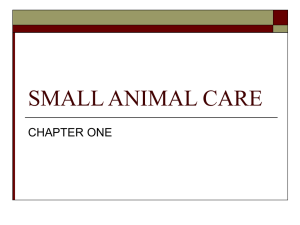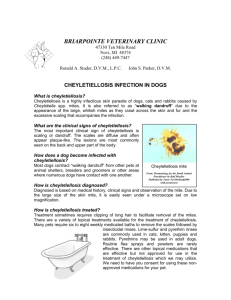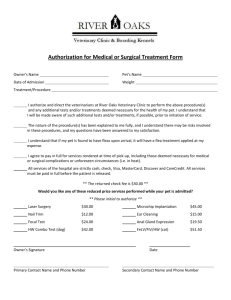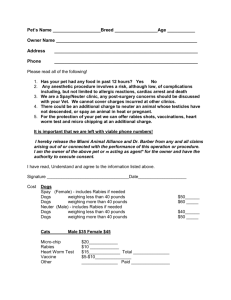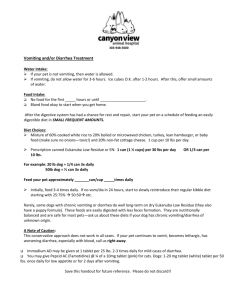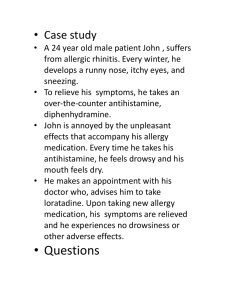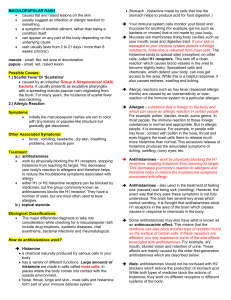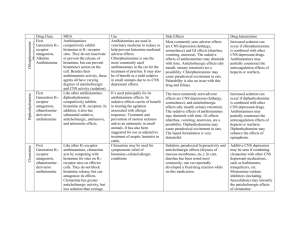antihistamines for your pet - Canton Center Animal Hospital
advertisement
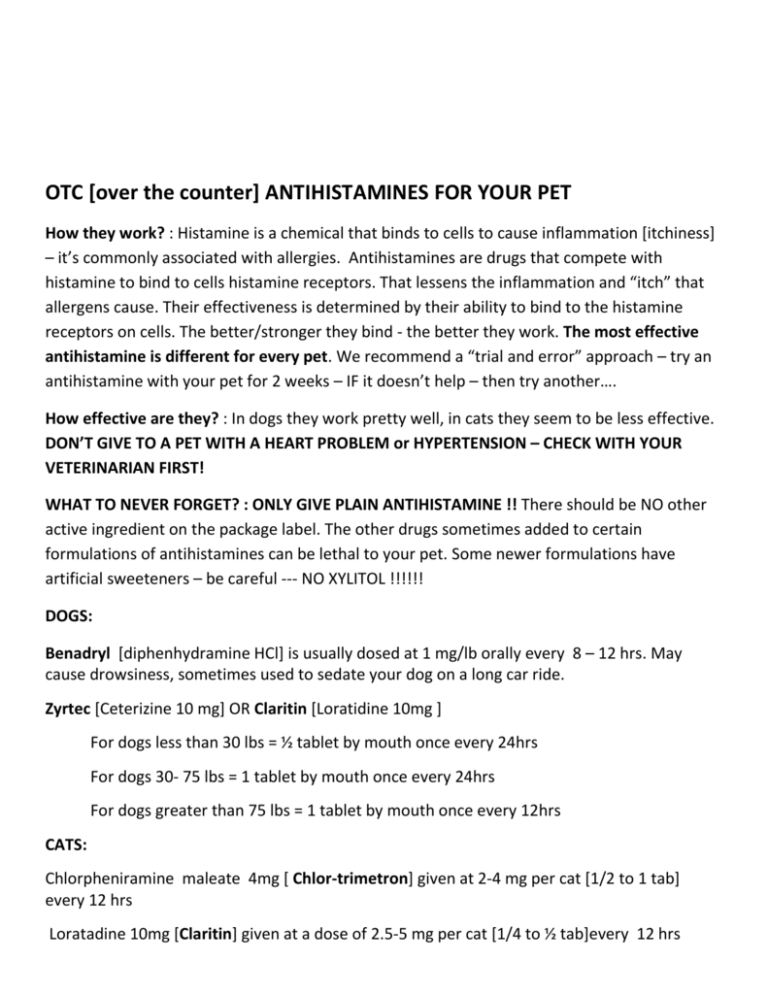
OTC [over the counter] ANTIHISTAMINES FOR YOUR PET How they work? : Histamine is a chemical that binds to cells to cause inflammation [itchiness] – it’s commonly associated with allergies. Antihistamines are drugs that compete with histamine to bind to cells histamine receptors. That lessens the inflammation and “itch” that allergens cause. Their effectiveness is determined by their ability to bind to the histamine receptors on cells. The better/stronger they bind - the better they work. The most effective antihistamine is different for every pet. We recommend a “trial and error” approach – try an antihistamine with your pet for 2 weeks – IF it doesn’t help – then try another…. How effective are they? : In dogs they work pretty well, in cats they seem to be less effective. DON’T GIVE TO A PET WITH A HEART PROBLEM or HYPERTENSION – CHECK WITH YOUR VETERINARIAN FIRST! WHAT TO NEVER FORGET? : ONLY GIVE PLAIN ANTIHISTAMINE !! There should be NO other active ingredient on the package label. The other drugs sometimes added to certain formulations of antihistamines can be lethal to your pet. Some newer formulations have artificial sweeteners – be careful --- NO XYLITOL !!!!!! DOGS: Benadryl [diphenhydramine HCl] is usually dosed at 1 mg/lb orally every 8 – 12 hrs. May cause drowsiness, sometimes used to sedate your dog on a long car ride. Zyrtec [Ceterizine 10 mg] OR Claritin [Loratidine 10mg ] For dogs less than 30 lbs = ½ tablet by mouth once every 24hrs For dogs 30- 75 lbs = 1 tablet by mouth once every 24hrs For dogs greater than 75 lbs = 1 tablet by mouth once every 12hrs CATS: Chlorpheniramine maleate 4mg [ Chlor-trimetron] given at 2-4 mg per cat [1/2 to 1 tab] every 12 hrs Loratadine 10mg [Claritin] given at a dose of 2.5-5 mg per cat [1/4 to ½ tab]every 12 hrs
